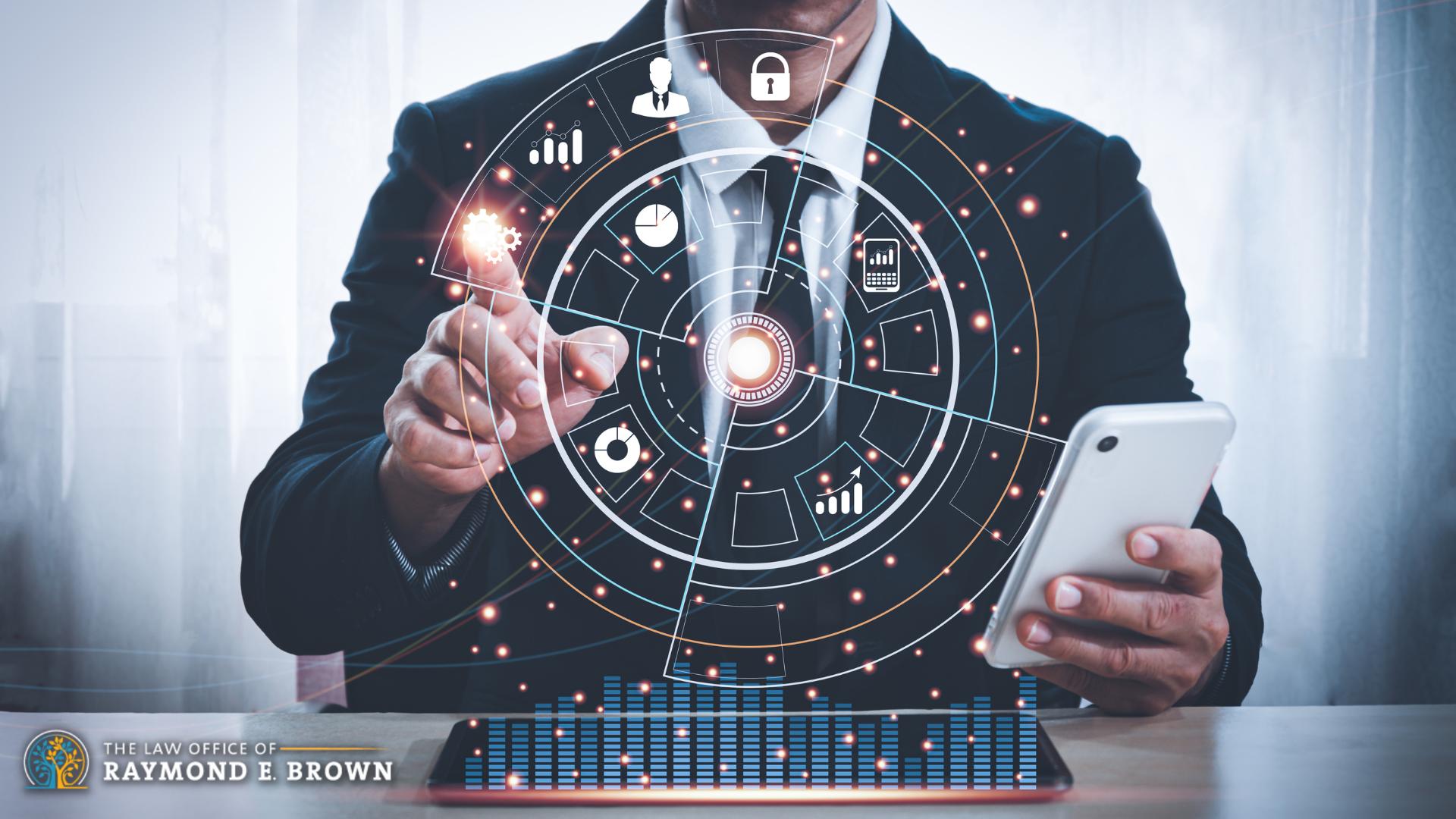In this digital age, passwords, electronic banking information, and other digital assets have become an important part of estate planning in the 21st century. With the passing of RUFADAA, executors can access the deceased’s digital accounts and assets following their death.
If you have questions regarding your digital assets, contact the Maryland estate planning attorneys at The Law Office of Raymond E. Brown. To schedule a free inietial consultation with one of our experienced estate planning attorneys, call (443) 554-9944 today.
What is RUFADAA?
The Revised Uniform Fiduciary Access to Digital Assets Act (RUFADAA) is a law that was developed to address the issues surrounding the management of digital assets after a person’s death or incapacity. The Uniform Law Commission developed the act, which has been adopted in many states, including Maryland. Here is a brief overview of what RUFADAA is and how it is applied.
RUFADAA Overview
RUFADAA is a law that grants fiduciaries, such as personal representatives or trustees, the authority to manage and access digital assets after a person’s death or incapacity. Digital assets include email accounts, social media accounts, electronic communications, online banking accounts, and digital files.
Under RUFADAA, a fiduciary can access a person’s digital assets if they have given prior consent in their estate planning documents or if a court has appointed the fiduciary. However, suppose a person has not given prior permission or appointed a fiduciary. In that case, the terms of service agreements for each digital asset will determine how the fiduciary can access the assets.

The Significance of the Revised Uniform Fiduciary Access to Digital Assets Act
The original Uniform Fiduciary Access to Digital Access Act (UFADAA) was created in 2014. This initial version allowed executors and agents access to the decedent’s digital assets, which were treated like traditional assets. Once a person passed away or became incapacitated, the executor would have the same access to the deceased person’s online accounts. This allowed executors the ability to close online accounts, save photos, pay online bills, and more. However, technology companies argued that the UFADAA went against federal privacy laws.
After the backlash of UFADAA, the Uniform Law Commission revised the law and created the Revised Uniform Fiduciary Access to Digital Assets Act (RUFADAA). This updated version reduces fiduciary’s access to digital accounts. Before, if the fiduciary didn’t have access to an online account, they could request access to it. Now, the person creating their will can distinguish which online accounts they want accessible to their executor and which they do not.
Addressing the Challenges of Managing Digital Assets in Estate Planning
Due to privacy laws and computer fraud laws, the original UFADAA was met with much backlash. Technology companies argued that this law negated the terms of service agreements (TOSAs) that users agree to when creating online accounts. Since TOSAs restrict who can access accounts, the UFADAA gave fiduciary access to these accounts even if it contradicted the TOSA.
The UFADAA essentially removed a person’s privacy from their online accounts once they passed and granted access to the estate executor. As you can see, this could create many problems with protecting a person’s privacy, even in death.
RUFADAA lets individuals decide what access they allow their executors regarding their online accounts and follows a three-tier priority system:
- An online tool, like Google’s Inactive Account Manager and Facebook’s Legacy Contact, allows a person to select another individual that they want to have access to their accounts after a period of inactivity. According to RUFADAA, online tools have priority over other instructions, including the TOSAs.
- In the absence of an online tool, the user’s instructions provided in their will, power of attorney, or other legal documents will be followed.
- If the user did not use an online tool or provide written instructions, the terms of service agreement (TOSAs) will determine the extent of the executor’s access.

How is RUFADAA Applied?
RUFADAA is applied in several ways.
First, it allows individuals to include provisions in their estate planning documents that authorize their fiduciaries to access their digital assets. This can consist of providing a list of usernames and passwords or specifying what should happen to each account after their death.
RUFADAA also provides a process for fiduciaries to obtain access to digital assets if the person has not given prior consent or appointed a fiduciary. This process involves submitting a request to the custodian of the digital asset, such as an email provider or social media platform. The request must include specific information, such as proof of authority, account information, and the fiduciary’s contact information.
Finally, RUFADAA requires custodians of digital assets to have a process for handling fiduciary requests. This process must be reasonable and may include providing access to the assets or providing a copy of the assets to the fiduciary.
Example of RUFADAA
John was an avid collector of digital artwork and had several valuable pieces stored in his online accounts. Unfortunately, John passed away unexpectedly, and his family was left with the difficult task of managing his estate, including his digital assets.
Without RUFADAA, John’s family would have to navigate a complex web of terms of service agreements to gain access to his accounts and digital assets. In addition, some custodians may have refused access or deleted John’s accounts and digital assets altogether.
However, because John had included provisions in his estate planning paperwork authorizing his fiduciaries to access his digital assets, his family could access his accounts and recover his valuable digital artwork. They were able to sell the artwork and include the proceeds in John’s estate.
This way, RUFADAA helped John’s family manage his digital assets and ensure his wishes were followed.
Key Components of the Digital Assets Act
The major components of the RUFADAA restrict an executor’s access to a deceased person’s digital assets. Those components are as follows:
- Executors cannot access the content of electronic communications like private chats, emails, and tweets unless the deceased person consents.
- If the executor wishes to access a digital asset they cannot access, they will need to petition the court and explain why they need access.
- If permission is not granted in the will, the custodian can review the TOSAs to determine if the request is within the legal bounds of the agreement.
- Custodians can refuse access to deleted assets and joint accounts.

Defining Digital Assets
Digital assets are a broad range of electronic records and files kept online on mobile devices or personal computers. These assets can include the following:
- Cell phone apps
- Email accounts
- Online banking accounts
- Social media accounts
- Online subscription-based accounts
- Digital photos saved on the cloud or online
- Online dating appts
- Online accounts for paying utilities
- E-commerce or marketplace accounts (eBay, Amazon, etc.)
- Loyalty program benefits like frequent flyer miles and credit card perks
Importance of RUFADAA for Estate Planning
As more of our assets are transferring to the digital world, it’s important to implement a digital asset estate plan. Maryland is one of several states that have adopted the RUFADAA, which allows executors access to online accounts to control a deceased’s digital assets. This can include closing accounts, deleting a user’s account, discontinuing online subscription services, etc.
Without access to a deceased user’s accounts, family members may have an extensive probate court process ahead of them to gain access to their digital assets. With a digital estate plan, your family will understand how to proceed with digital accounts and how they should be managed.
The Importance of Working with Estate Planning Attorneys Familiar with RUFADAA
When planning for your loved ones’ lives following your death, it’s important to consider implementing digital estate planning into your will. With updates to digital asset management laws, you’ll want to work with an experienced attorney familiar with RUFADAA and digital estate planning.
At The Law Office of Raymond E. Brown, our Maryland digital estate attorneys will help you with the following:
- Take an inventory: Create a list of your digital assets, including passwords, usernames, and other relevant information like security question answers, etc. Keep this list in an encrypted file or a safety deposit box.
- Designate your digital executor: Choose an individual to act as your digital executor. This person will be responsible for managing your digital assets according to the instructions you’ve left.
- Provide instructions: Write detailed instructions regarding your digital assets, specifying who can have access and what should happen to certain assets.
- Inclusion in Legal Documents: Incorporate your digital asset plan into your will, living trust, or other legal documents, ensuring your wishes are legally binding and enforceable.
- Update your plan: As technology and digital platforms evolve, your estate planning attorney can help you keep your digital asset plan up to date, ensuring its relevance over time.
- Provide legal knowledge and guidance: Guide you through relevant laws, regulations, and terms of service agreements that may impact how these assets are handled.

Protect Your Digital Assets – Call Maryland Estate Planning Attorney Raymond E. Brown Today
If you have digital assets, including them in your estate plan and working with an experienced estate planning attorney to ensure your wishes are followed is essential. If you’re ready to create a digital estate plan, contact the Maryland estate planning attorneys at The Law Office of Raymond E. Brown today. Our law firm has helped countless clients outline their final wishes and ensure their family is cared for following their death.
We understand how difficult estate planning and administration can be, especially when including your digital assets. We’ll make sure that your family is granted necessary access to accounts while maintaining an element of privacy.
To schedule a consultation with one of our compassionate estate planning attorneys, give us a call at (443) 554-9944 or contact us online today.

